Oct. / Nov. 2025 / 2026: Western Cape Highlights: Birding the tip of Africa
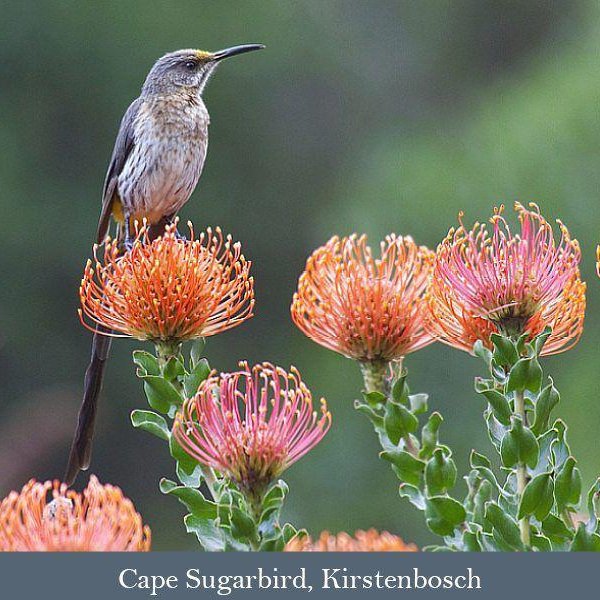
The Western Cape is a special place indeed. It’s unique in many ways. And this uniqueness is what makes it such a great birding destination. The region’s Fynbos Vegetation type makes up the Cape Floral Kingdom. To clarify, this is the smallest of the world’s Floral Kingdoms. Yet it contains over 9000 species of vascular plants, 69% of which are endemic! Moreover, this Fynbos vegetation component is home to a range of endemic birds. Consequently, these will be a core focus of this Western Cape Birding tour. In addition to some superb birds, the scenery, landscapes, food and wine on this trip will all add to the experience. Indeed, this tour offers an unforgettable birding, wildlife and cultural experience!
Areas covered:
Your Western Cape birding experience starts at Cape Town International Airport. Our first stop is on the Cape Peninsula, where we are based in Simon’s Town. From there we head east to Swellendam and the Agulhas Plain. Turning inland we then explore the arid Tankwa Karoo. Our last stop is in Langebaan on the West Coast. Finally, on the last day we head back to Cape Town.
Accommodation:
The accommodation is of a medium-plus standard. It includes Bed and Breakfasts throughout. Importantly, all accommodations have en-suite facilities, and are clean and comfortable.
The birding:
Endemics and near-endemics are a core focus of this Western Cape birding tour. For example, there are a handful of Fynbos endemics that are found nowhere else in the world. These are top of the list and include: Cape Rockjumper, Cape Sugarbird, Orange-breasted Sunbird, Cape Siskin, Protea Canary and Victorin’s Warbler. Other near-endemics and specials are also on the cards, including: Cape, Crowned and Bank Cormorants, African Black Oystercatcher, Cape Gannet, Black Harrier, Jackal Buzzard, Bokmakierie, Southern Double-collared Sunbird, Cape and Agulhas Long-billed Larks, Blue Crane, Southern Tchagra, Knysna and Ground Woodpeckers, Karoo Eremomela, Karoo and Southern Black Korhaans, Grey-winged Francolin and many others. And participants who arrive early to do the pelagic trip will be introduced to a host of marine species, including a range of Albatrosses, Petrels, Prions, Shearwaters, Storm Petrels etc.
See the species check list on the digital itinerary for the full species list.
The mammals:
The Cape doesn’t hold as many big mammals as other parts of the country. There are still however some interesting species to see. These include Bontebok, Cape Grysbok, Cape Mountain Zebra, Eland, Rock Hyrax and even Caracal with a bit of luck. And by November numbers of Southern Right Whales offshore will be decreasing, but there should still be a fair few to be seen.
In conclusion, this Western Cape birding experience is unique in every respect. From the birds to the wildlife, scenery, food and culture, be prepared for something completely different… Western Cape Highlights can easily be combined with a visit to the Kruger National Park, so speak to us for more info.
Gallery
Itinerary
Tour in brief
Group size: maximum of 10 participants; 5 participants per guide / vehicle.
Areas visited: Cape peninsula, Swellendam, Ceres and Langebaan.
Expected weather conditions: the Cape’s weather is notoriously variable and while November is out of the traditional winter rainy season, some rain can be expected, while fine and warm conditions are also expected.
Tour tempo: medium to medium-plus, optional mid-day breaks on non-travelling days.
Accommodation standards: medium plus: lodges and guest houses.
Birding in brief: excellent variety, forest, marine, coastal, Karoo and mountain habitats covered.
Top birds: Cape Rockjumper, African Penguin, Cape Sugarbird, Black Harrier, Orange-breasted Sunbird, Cape Siskin, Knysna Woodpecker, Bank Cormorant, Cape Gannet, Karoo Korhaan, Karoo Eremomela, Cinnamon-breasted Warbler.
Mammal viewing: Southern Right Whales in season (August to December); antelope species such as the endemic Bontebok, Chacma Baboon, Rock Hyrax and other smaller species. No Big Five.
Other wildlife and attractions: Table Mountain and the Cape Peninsula, the scenic drive between Gordon’s Bay and Pringle Bay, the Fold Mountains of the interior, the desolate scenery of the Karoo.
Add-ons: This trip can be combined with an extension to the Kruger Park region. Contact us for more information.
Full Itinerary
Rates
2025: ZAR 49 995 per person sharing; ZAR 5 995 single supplement
2026: ZAR 55 890 per person sharing; ZAR 6 385 single supplement
Price may be subject to change based on factors beyond our control. Note that this tour can only run at the listed price with a minimum of two participants.
Includes
- Accommodation
- All breakfasts and dinners
- Ground transport
- Bottled water in vehicles whilst travelling
- Entrance fees
- Personalised checklists
- Specialist guide fees
Excludes
- All airfares
- Travel and medical insurance
- Lunches
- All drinks
- Optional excursions where applicable
- Gratuities
- Items of a personal nature
Note
- This itinerary is subject to change due to weather conditions at the time and other factors beyond our control.
- The species mentioned in the itinerary represent only some of the possible ones we may see on the tour, however, none of these can be guaranteed even though every effort will be made where possible to locate them. A full list of possibles appears on your checklist.
Ideally, participants need to overnight in Cape Town the night before the tour starts. We are happy to arrange this accommodation. Alternatively participants need to arrive on early morning flights on the day the tour starts. Tour ends in Cape Town on the last day of the tour in time for evening departure flights. Please check with us before booking any flights.
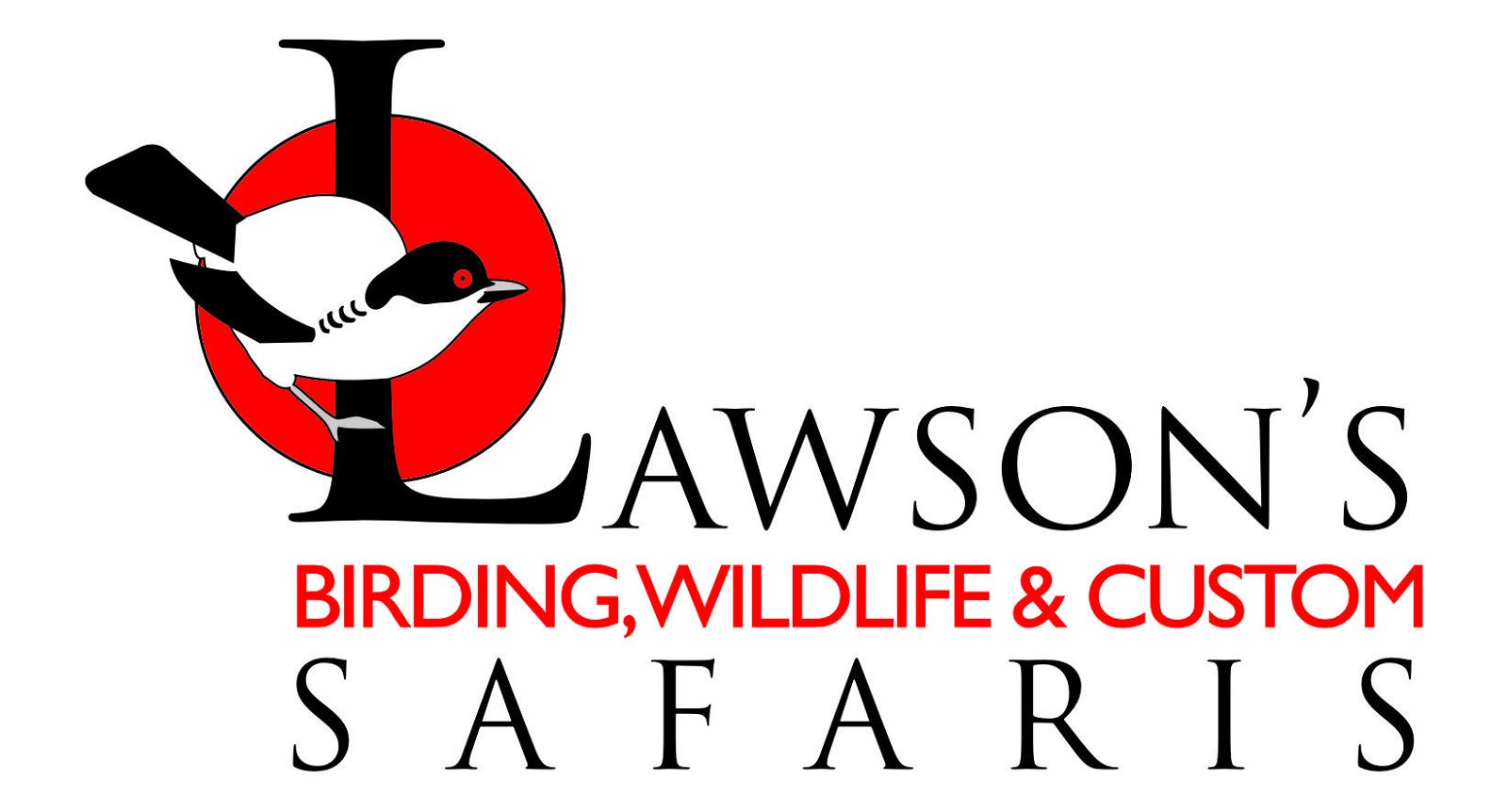

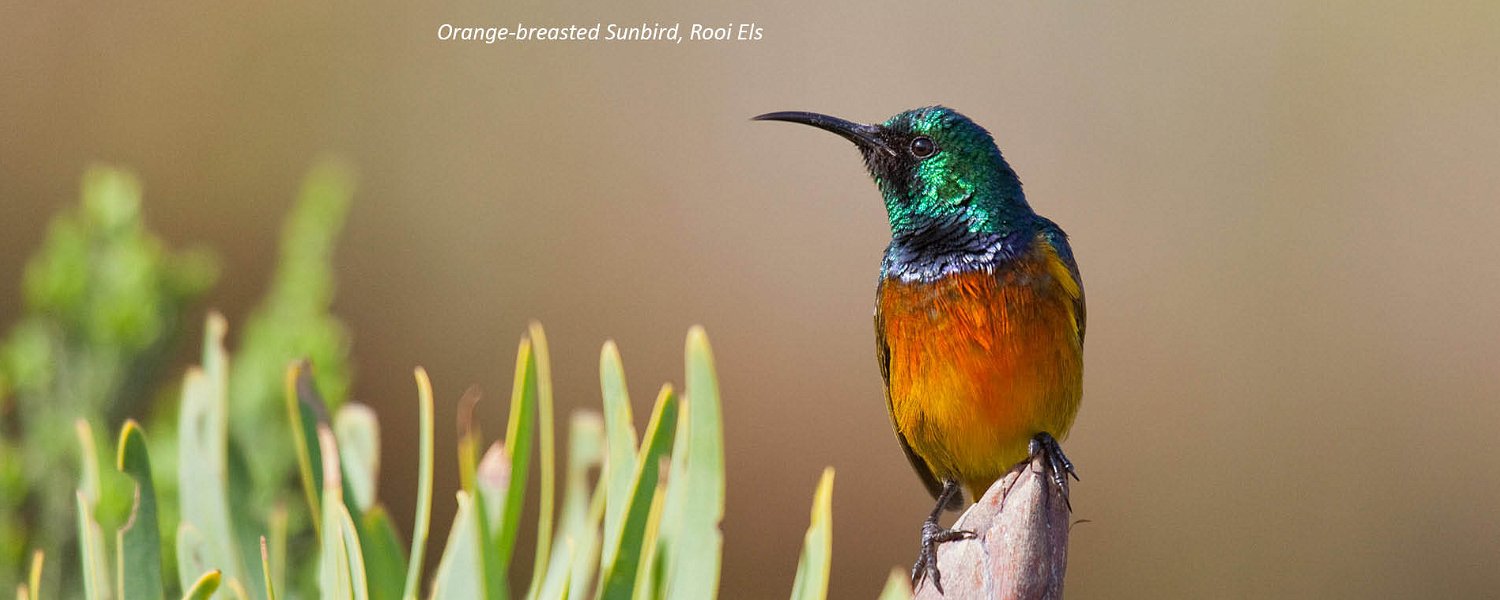
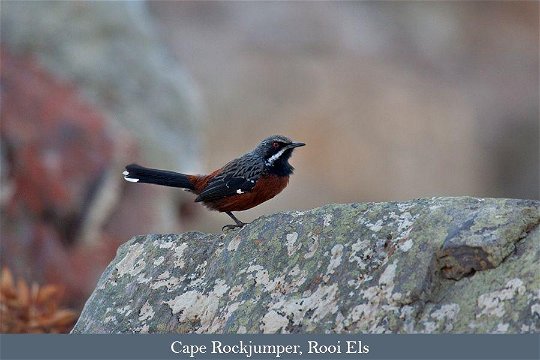
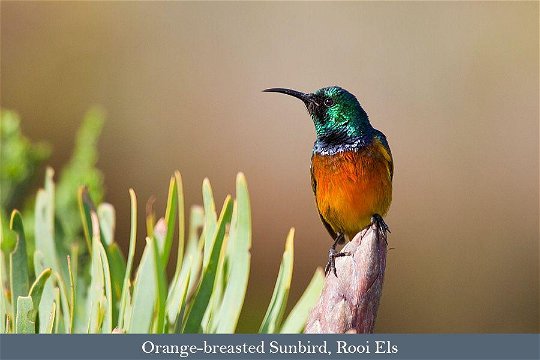
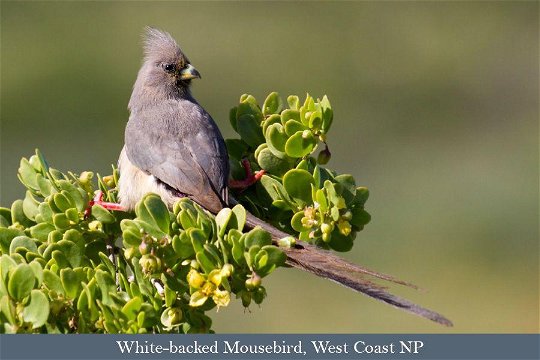
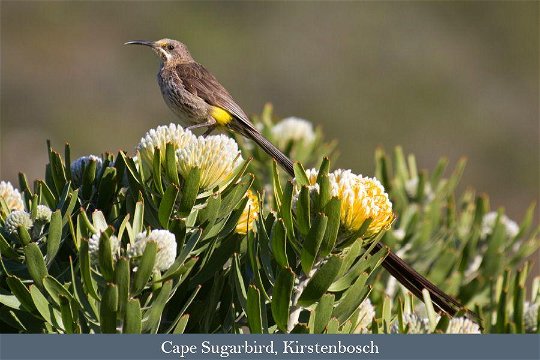
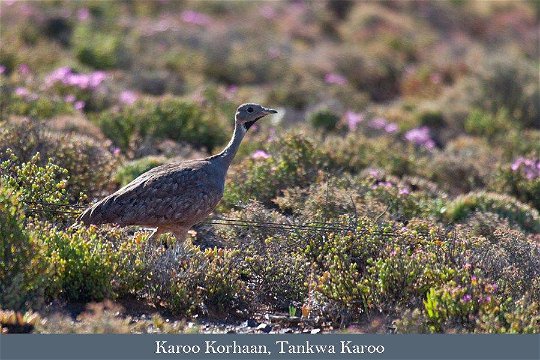
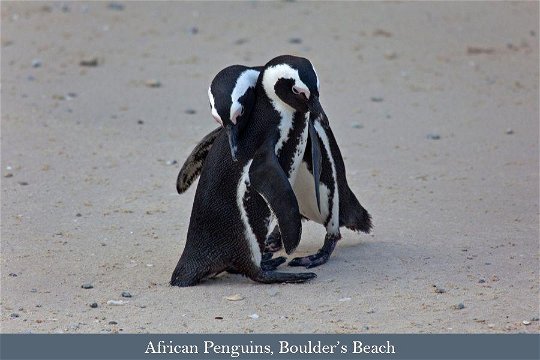
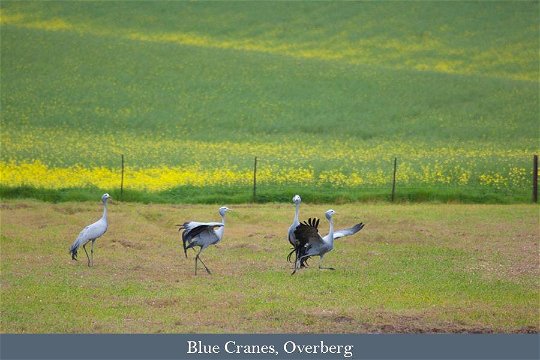
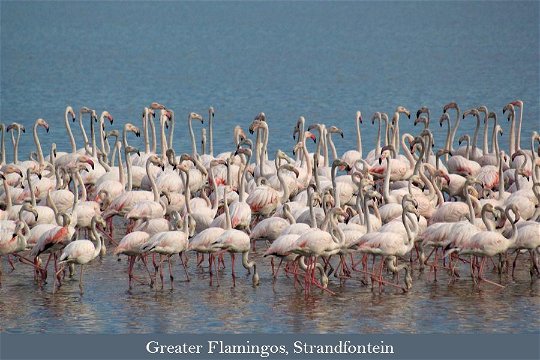
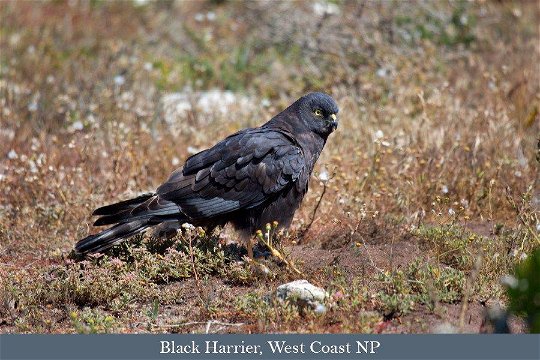
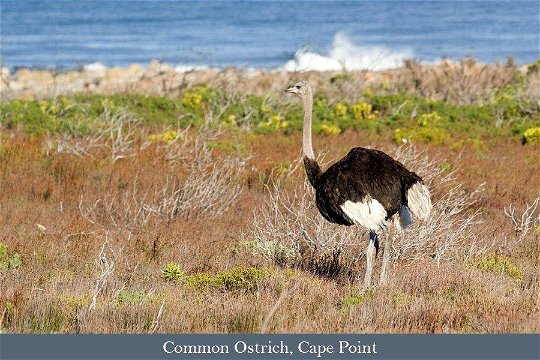
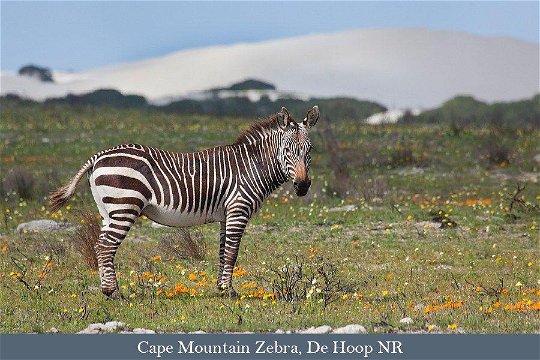
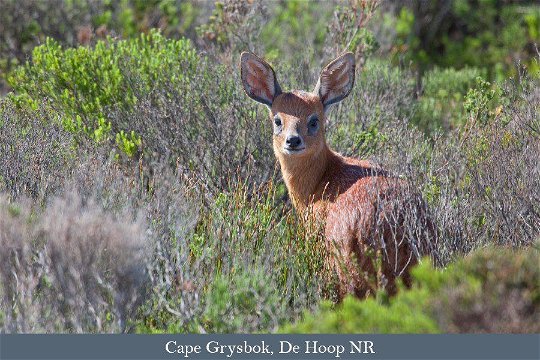
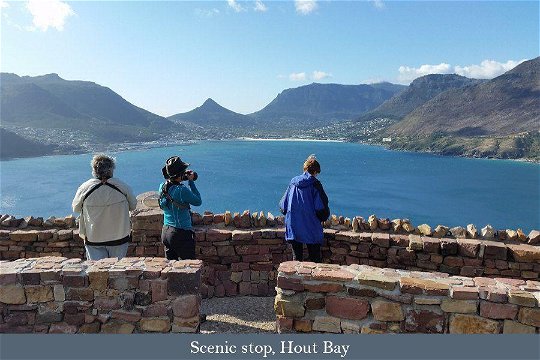
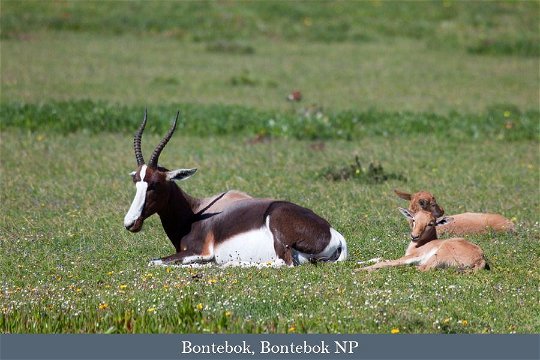
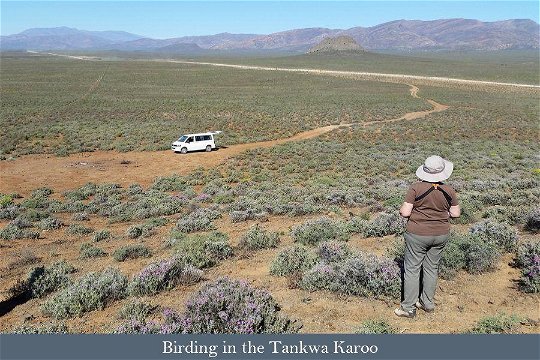
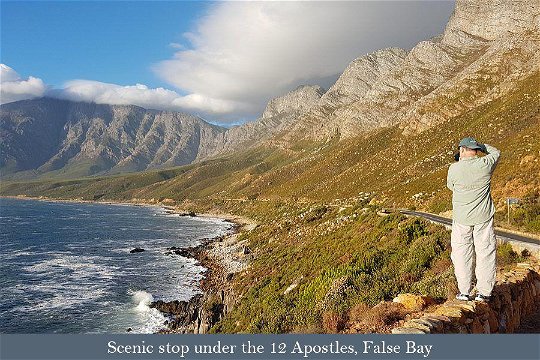
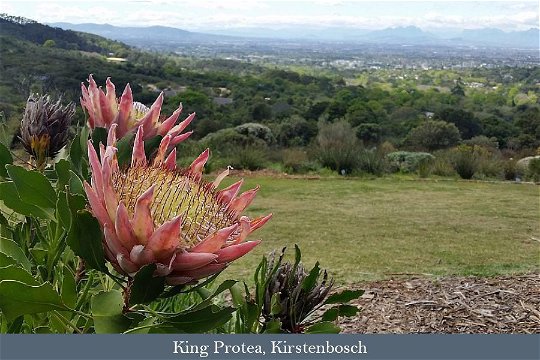
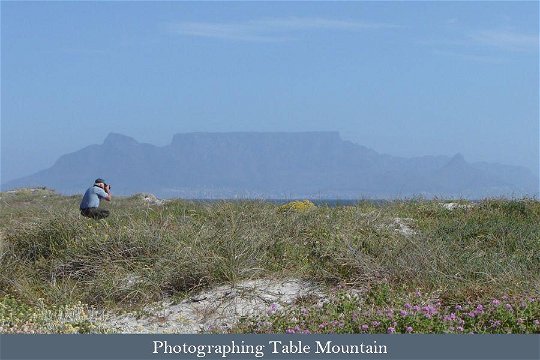
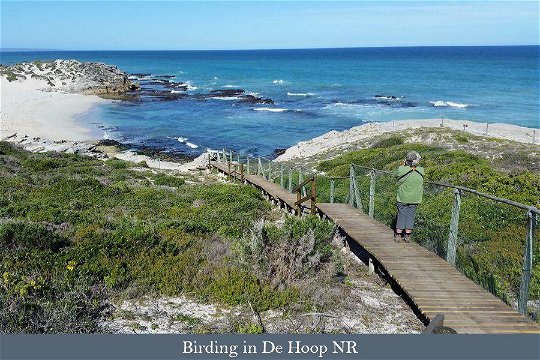
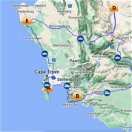
Share This Page